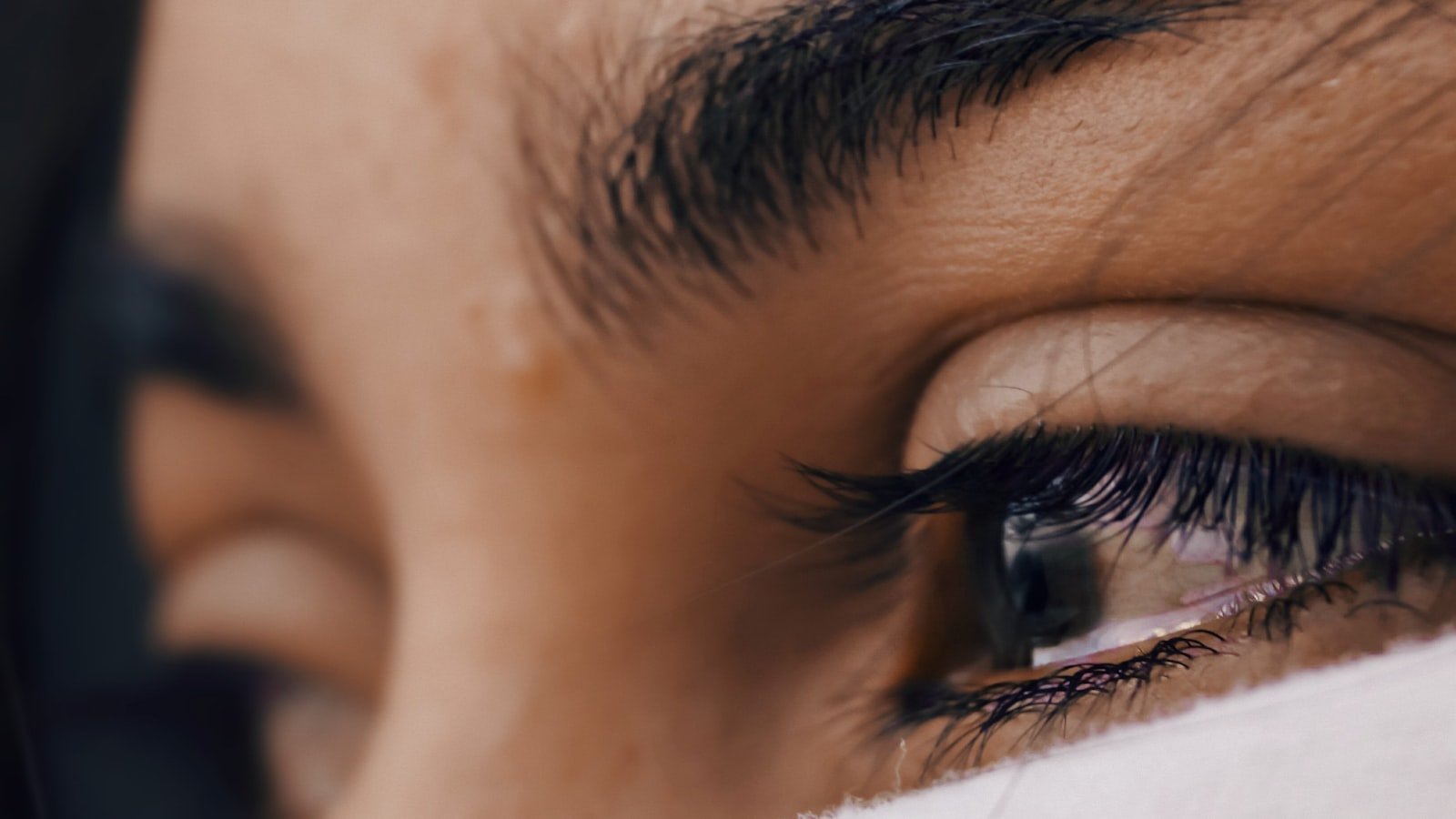In a world where our eyes act as the windows to our souls, the last thing we want is for those windows to be clouded with irritation and discomfort. Whether it’s a captivating sunset or a loved one’s smile, the ability to fully appreciate the beauty around us can be hindered by the pesky menace of eye allergies. But fear not, dear readers, for this article is dedicated to shedding light on effective strategies for dealing with those dreaded eye allergies. From ingenious home remedies to cutting-edge medical breakthroughs, we are here to tackle the itchiness, redness, and watery eyes that have plagued you for too long. So, sit back, relax, and prepare to have your gaze refocused on the wonders of the world, as we embark on a journey to reclaim your eyes’ former glory.
The Itchiest Dilemma: Understanding the Causes of Eye Allergies
Those pesky eye allergies can truly be a nuisance, causing unbearable itchiness and discomfort. It’s essential to understand their causes to find effective solutions. Let’s delve into the mysterious world of eye allergies and uncover the factors that trigger those relentless itches.
Pollen Power: Ah, pollen, Mother Nature’s minuscule troublemakers. From beautiful blossoms to lush greenery, pollen is a common culprit behind eye allergies. These microscopic particles easily find their way into our eyes, provoking our immune system and resulting in red, swollen, and itchy eyes. Spring and summer are particularly notorious for high pollen counts, making eye allergies a common woe during those seasons.
Furry Foes: Pets, our lovable companions, can occasionally be the cause of our eye allergy misery too. Our furry friends can carry allergens such as pet dander, which consists of tiny flakes of skin, saliva, and even urine. When these allergens come into contact with our eyes, they provoke an allergic reaction, leading to itchiness, redness, and watery eyes. So, while cuddling with our pets is delightful, it’s crucial to keep an eye out for any potential allergic reactions.
Dust Dynasty: Dust mites, those uninvited microscopic guests in our homes, are ruthless when it comes to triggering eye allergies. These tiny creatures feast on dead skin cells and thrive in warm and humid environments. Moreover, they can accumulate in bedding, carpets, and upholstery, creating a dust dynasty. When we come into contact with dust mites, our immune system goes haywire, resulting in those infuriating eye allergy symptoms.
Now that we’ve uncovered some of the common causes of eye allergies, it’s clear that they can be sparked by various factors such as pollen, pet dander, and dust mites. Remember to stay diligent in keeping your surroundings clean, using air purifiers, and seeking medical guidance when necessary. By understanding the causes of eye allergies, you can take steps to alleviate those itchy dilemmas and enjoy clearer, more comfortable vision.

Targeting Triggers: Tips for Identifying and Avoiding Allergens
Allergens can turn a pleasant day into a sneeze-filled nightmare, but fear not! By learning to identify and steer clear of your triggers, you can regain control of your environment and find relief. Here are some creative tips to help you target those pesky allergens, so you can enjoy an allergy-free life:
1. Contain the Indoor Menace:
- Dust mites, mold spores, and pet dander can thrive indoors. Take proactive measures to minimize their presence:
- Cover your mattresses and pillows with allergen-proof covers.
- Vacuum regularly and use a HEPA filter to trap those microscopic irritants.
- Keep humidity levels low to discourage mold growth.
- Create designated pet-free zones in your home to minimize exposure to dander.
2. Battle Pollen Like a Warrior:
– Seasonal allergies got you feeling conquered? Gear up with these tips to combat pollen:
- Stay informed on daily pollen forecasts to plan your outdoor activities accordingly.
- Wear sunglasses and a wide-brimmed hat to shield your face from pollen.
- Change your clothes and wash your hands after being outside to avoid bringing pollen indoors.
- Consider using an air purifier with a HEPA filter at home to capture airborne pollens.
3. Master Your Food Allergies:
– Food allergens can lurk in unexpected places, but you can learn to navigate them safely:
- Read food labels carefully and look for potential allergens listed in bold.
- Inform waitstaff or hosts about your food allergies when dining out or attending events.
- Experiment with alternative ingredients and recipes to still enjoy your favorite dishes.
- Consider carrying an epinephrine auto-injector if you have severe allergies to certain foods.
Remember, identifying and avoiding allergens is a continuous process that requires a keen eye and some creativity. By implementing these strategies, you’ll be better equipped to target those triggers and live an allergen-minimized lifestyle, allowing you to breathe easy and enjoy life to the fullest!
Eye Drops and Beyond: Exploring Effective Treatments for Eye Allergies
Alternatives to Eye Drops for Treating Eye Allergies
Eye allergies can be irritating and cause discomfort, but there are effective treatments beyond the traditional use of eye drops. If you’ve been using eye drops and are looking for alternative solutions, here are some ideas worth exploring:
- Warm Compress: Applying a warm compress to your closed eyes can help soothe irritation caused by eye allergies. The warmth helps to alleviate itching and reduce redness. Simply soak a clean cloth in warm water and gently press it against your eyes for a few minutes.
- Nasal Irrigation: Allergens that cause eye allergies often enter through the nose. By performing nasal irrigation using a saline solution, you can remove irritating particles and reduce the chance of them reaching your eyes. This can be done using a neti pot or a saline nasal spray.
- Antihistamine Pills: In some cases, eye allergies are accompanied by other allergy symptoms, such as sneezing or a runny nose. Taking antihistamine pills can provide relief not only for these symptoms but also for eye itchiness and redness.
Remember, if your eye allergies persist or worsen, it’s essential to consult with an eye specialist or allergist for further advice and diagnosis. Exploring these alternatives to eye drops can provide additional methods to manage your eye allergy symptoms effectively.

Shielding Your Eyes: Practical Steps for Preventing Eye Allergies
Allergies can be a real nuisance, especially when they affect our precious eyes. Itchy, watery, and red eyes can really put a damper on our day. But fear not! Shielding your eyes from annoying allergies is easier than you think.
The key to preventing eye allergies is to keep allergens at bay. Here are some practical steps you can take to ensure your eyes stay clear and comfortable:
- Keep your home clean: Dust, pet dander, and mold can trigger eye allergies. Regularly vacuuming, dusting, and washing bedding in hot water can help minimize allergens in your living space.
- Avoid rubbing your eyes: As tempting as it may be, rubbing your eyes can aggravate the irritation caused by allergens. Instead, use a clean, damp cloth to gently wipe away any foreign particles.
- Use eye protection: When venturing outdoors, especially during high pollen seasons, wearing wraparound sunglasses can shield your eyes from allergens. Additionally, consider wearing a wide-brimmed hat to provide extra protection.
Furthermore, there are several habits you can adopt to reduce the risk of eye allergies:
- Keep windows closed: While having a refreshing breeze in your home might be delightful, open windows allow allergens to enter easily. Keep them shut during allergy season, opting for air conditioning or air purifiers instead.
- Avoid wearing eye makeup: Cosmetics can trap allergens, exacerbating eye allergies. Consider going makeup-free during allergy flare-ups or choosing fragrance-free, hypoallergenic products that are less likely to trigger a reaction.
- Consult an eye care specialist: If eye allergies persist despite your best efforts, seeking professional advice is crucial. An eye care specialist can assess your symptoms and recommend suitable treatments, such as eye drops or oral antihistamines.
By implementing these practical steps and adopting healthy habits, you can shield your eyes from the discomfort of eye allergies and enjoy clear, comfortable vision throughout the year.

Seeing Clearly: Expert Recommendations for Managing Chronic Eye Allergies
Expert Recommendations for Managing Chronic Eye Allergies
Living with chronic eye allergies can be a frustrating experience, but fear not! We have consulted with top experts in the field to gather their invaluable recommendations for effectively managing this condition. From simple lifestyle changes to innovative treatments, here are their expert tips for achieving clearer vision and reducing discomfort caused by chronic eye allergies.
1. Avoid Allergy Triggers
Identifying and avoiding triggers that worsen your eye allergies is crucial. Common triggers include pollen, pet dander, dust mites, and mold. Ensure your living areas are always clean and dust-free, invest in high-quality air filters, and consider using allergen-proof bedding. If you enjoy spending time outdoors, remember to wear wraparound sunglasses to shield your eyes from irritating allergens.
2. Practice Proper Hygiene
Regularly washing your hands and face can greatly reduce the likelihood of allergens coming into contact with your eyes. Remember to use a mild fragrance-free soap or cleanser to prevent any further irritation. Avoid rubbing your eyes, as this can aggravate the symptoms and potentially lead to infection. Be mindful of your pillowcases and change them often to keep allergens at bay.
3. Seek Relief with Artificial Tears
Your eyes may become dry and itchy due to chronic allergies. Combat this discomfort by using over-the-counter artificial tears or lubricating eye drops. These products can help soothe your eyes and provide temporary relief from irritation. Consult with your eye care professional to find the most suitable brand for you.
4. Consult an Eye Care Specialist
Don’t hesitate to reach out to an eye care specialist, such as an optometrist or ophthalmologist, for personalized advice and treatment options. They can assess the severity of your eye allergies and recommend suitable prescription eye drops or other medications to manage the symptoms. Regular eye exams are also important to monitor your eye health and ensure your vision remains clear.
By implementing these expert recommendations into your daily routine, you can regain control over your chronic eye allergies and start seeing the world with clearer, more comfortable eyes. Remember to consult with your healthcare provider before making any major changes to your treatment plan.
Closing Remarks
As we wrap up our journey through the world of eye allergies, it’s clear that the battle against itchy, watery eyes is not one to be taken lightly. From understanding the causes of eye allergies to exploring effective strategies for relief, we’ve delved into a realm where it is said that a sight for sore eyes may not be out of reach.
In this eye-opening adventure, we’ve uncovered the power of prevention, emphasized the importance of keeping allergens at bay, and revealed the wonders of soothing solutions. We’ve witnessed the resilience of the human spirit, as individuals from all walks of life have shared their triumphs over eye allergies and inspired us to take action.
But let us not forget that in this colorful world, filled with vibrant blooming flowers and breathtaking landscapes, there will always be a need for compassion and understanding. As we find ourselves amidst sneezes, itchy noses, and red-rimmed eyes, let us extend a hand to those around us, offering support and empathy. In doing so, we become beacons of hope, casting light upon the path towards relief, both for ourselves and for others.
While the fight against eye allergies may be an ongoing battle, armed with the knowledge gained here, we can face it head-on. Let us remember the importance of maintaining good eye hygiene, seeking professional advice when needed, and remaining vigilant in our efforts to create an allergen-free sanctuary.
So, dear readers, as we bid adieu to this eye-centric exploration, may we find solace in the fact that the world holds endless possibilities for those who refuse to let eye allergies dim their brilliant spirit. Let us embrace the world with wide-open eyes, for it is in these very eyes that we find the true beauty of life, even in the presence of allergens. And remember, every rise and fall of an eyelash brings us closer to a world where sore eyes become a distant memory, and clear vision becomes our reality.




